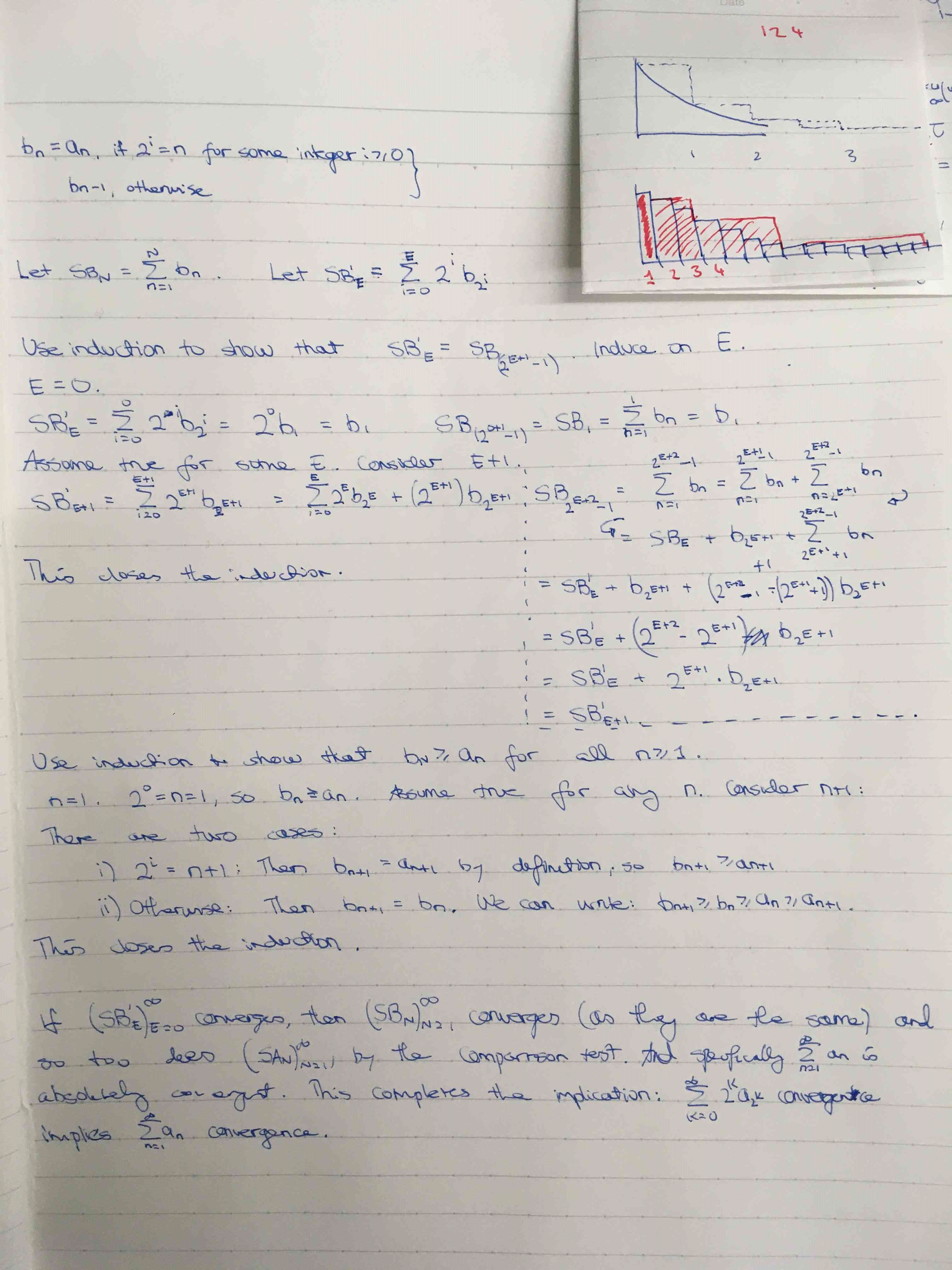Cauchy criterion, harmonic series and the Riemann-zeta function
Let \( (a_n)_{n=1}^{\infty} \) be a decreasing sequence of non-negative real numbers. Then the series \( \sum_{n=1}^{\infty}a_n \) is convergent if and only if the series
is convergent. This is the Cauchy criterion.
Harmonic series
The Cauchy criterion can be used to show that the Harmonic series, \( \sum_{n=1}^{\infty}\frac{1}{n} \), is divergent. Yet \( \sum_{n=1}^{\infty}\frac{1}{n^2} \) is convergent.
Riemann-zeta function
The quantity \( \sum_{n=1}^{\infty}\frac{1}{q^n} \) is called the Riemann-zeta function of q and is denoted by \( \zeta(q) \). This function is very important in number theory in particular for investigating the distribution of primes. There is a famous unsolved problem regarding this function called the Riemann hypothesis.
An interesting feature of this criterion is that it only uses a small number of elements of the sequence \( a_n \) (namely, those elements whose index is a power of 2, \( n = 2_k \text{ for some integer k > 0} \)) in order to deterimen whether the whole series is convergent or not.
Intuition
There is a visual/geometric understanding that makes the mechanism of the proof clear. See the drawing below.
The Cauchy Criterion introduces the idea of bunching together segments of the sum to make a new sum, and by clever bunching we can see if the series is decreasing fast enough for the sum to converge.
I think it is correct to say that if a series diverges, then there will exist a bunching of the sum such that each bunch is greater than some constant. This idea can be seen a bit more clearly if you try and create a clever bunching for the sum \( \sum_{n=1}^{\infty}\frac{1}{n^2} \)—you will find that there is no bunching that will work to form a constant, instead the bunches will keep getting smaller.
Proof
The proof of this is not short. The book has a more consise approach than what I took. The first half of my approach is:

Example
Divergence of the harmonic series
The proof of the following proposition is an example of the application of the Cauchy criterion.
Let \( q > 0 \) be a rational number. Then the series \( \sum_{n=1}^{\infty} \frac{1}{n^q} \) is convergent when \( q > 1 \) and divergent when \( q \le 1 \).
A particular divergent case of this series is the harmonic series: \( \sum_{n=1}^{\infty} \frac{1}{n} \). In comparison, \( \sum_{n=1}^{\infty} \frac{1}{n^2} \) is convergent.
Proof
The sequence \( (\frac{1}{n^q})_{n=1}^{\infty} \) is non-negative and decreasing (by Lemma 5.6.9 d), and so the Cauchy criterion applies. Thus, the sequence is convergent if and only if
is convergent. By the laws of exponentiation we can rewrite this as
This is a geometric series (\( \sum_{k=0}^{\infty}x^k \)) and converges if and only if \( |x| < 1 \). Thus our original \( \sum_{n=1}^{\infty} \frac{1}{n^q} \) will converge if and only if \( |2^{1-q}| < 1 \), which happens if and only if \( q > 1 \) (why?).
